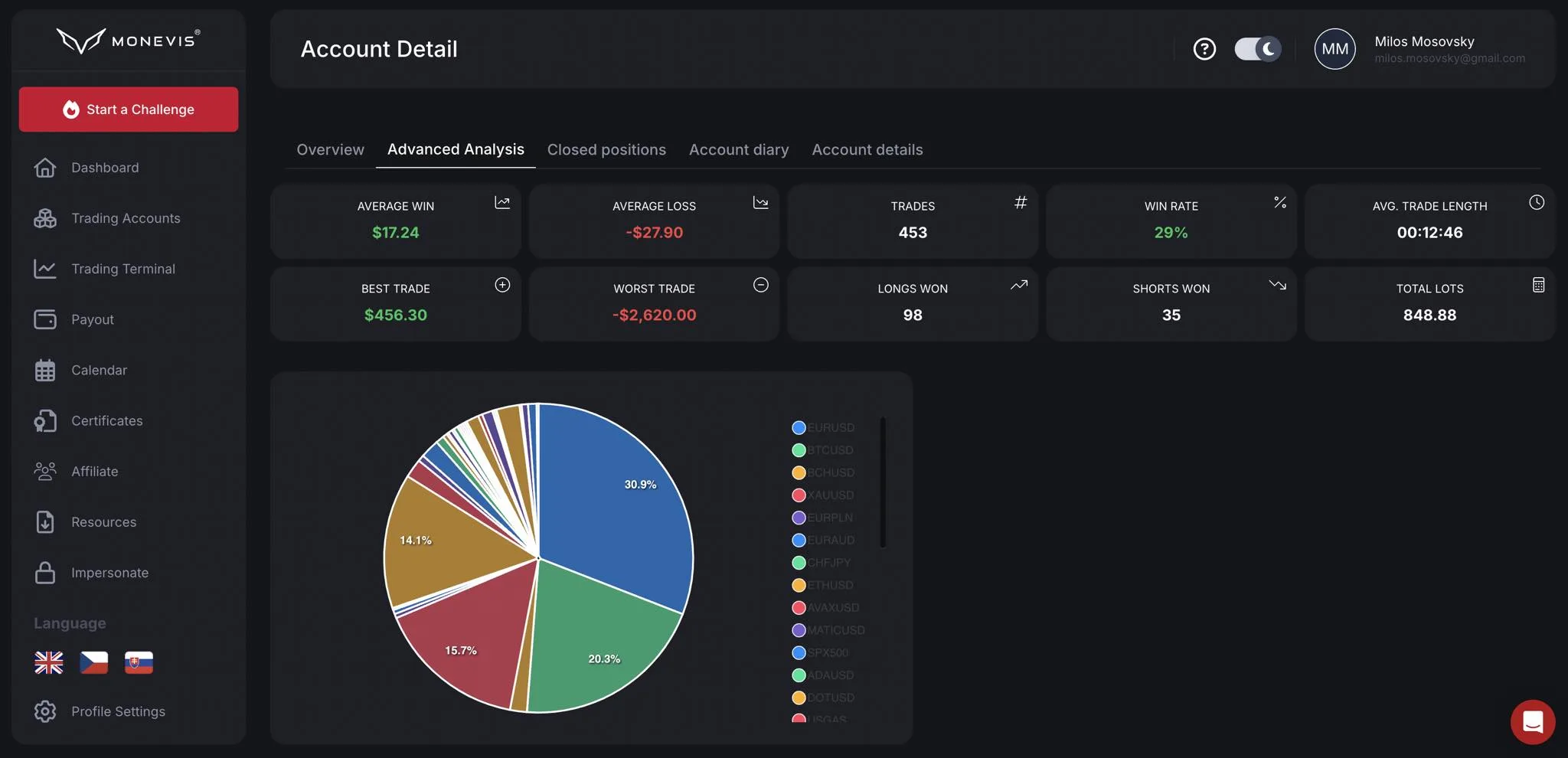Гаряча порада: Розкрийте свій торговий потенціал з Monevis®

You Don’t Need Perfection to Be a Profitable Trader
Many forex traders often believe that to achieve long-term profitability, their strategy must be perfect, including perfectly timed entries and exits. However, paradoxically, focusing too much on perfection can lead to the exact opposite result.
Beginner traders often search for the so-called “holy grail”—a strategy that guarantees 100% success. However, it is widely recognized that such a strategy does not exist. The problem many traders face is that they continuously strive to create the ideal strategy that will yield the maximum number of profitable trades. This approach, however, can be not only counterproductive but also financially draining.
Perfection Can Be an Obstacle to Success
There’s an old saying that “perfection is the enemy of good.” This phrase emphasizes that striving for perfection can be unnecessary and even harmful because absolute perfection simply doesn’t exist. This principle also applies to trading. Trying to fine-tune a strategy to perfection often leads to frustration and stagnation because the markets are dynamic and constantly changing.
The trading environment is unique, and many traders feel the need to develop a perfect strategy that would allow them to trade without emotions and achieve consistent returns. However, the truth is that there is no perfect approach to trading. It’s impossible to time every trade perfectly. It’s important to accept that some trades will be losses and to lower your profit expectations to avoid unnecessary stress.
Strategy Optimization: When to Stop?
Some traders become so focused on perfection and fine-tuning their strategy that they eventually become unable to open any trades. The strategy becomes so over-optimized that it offers very few trading opportunities. Excessive restrictions on the number of trades due to striving for perfection can be a mistake. If a trader sees how many potential trades they could have made but didn’t because of excessive caution, it can negatively impact their mindset.
It’s important to remember that even a well-functioning strategy can go through periods of multiple losing trades. If a trader begins to doubt their strategy and constantly tries to improve it, they may end up ruining it. Instead, traders should accept losing trades and lower their profit expectations to avoid constant stress.
Paralysis Caused by Perfectionism
Even worse than excessive optimization is when a trader loses confidence in their abilities due to a few unsuccessful trades. Even if a trader has well-established rules and good risk management, they may stop trading altogether because of a few bad experiences. This situation leads to unnecessary self-doubt and can significantly limit trading activity.
On the other hand, it’s not advisable to trade at all costs or rush into trades without careful consideration. The key is to find a balance—not to trade recklessly, but also not to be paralyzed by the fear of imperfection.
Success Lies in Consistency
Instead of striving for perfection, focus on being consistent and stable. If you can achieve success in 5 to 6 trades out of ten and maintain an RRR slightly above 1:1, you’re on the right track. If you make one or two trades per day (in the case of intraday trading) or a few trades per week (if you’re a long-term investor), you’ll be on the path to success.
When you stop striving for perfection, you’ll handle losing trades better and approach them as lessons to learn from. This approach will lead to more balanced trading and greater satisfaction, not only in the markets but also in your personal life.
Trade wisely and remember that being good at trading is more than enough. Stay on the safe side!
Гаряча порада: Розкрийте свій торговий потенціал з Monevis®

